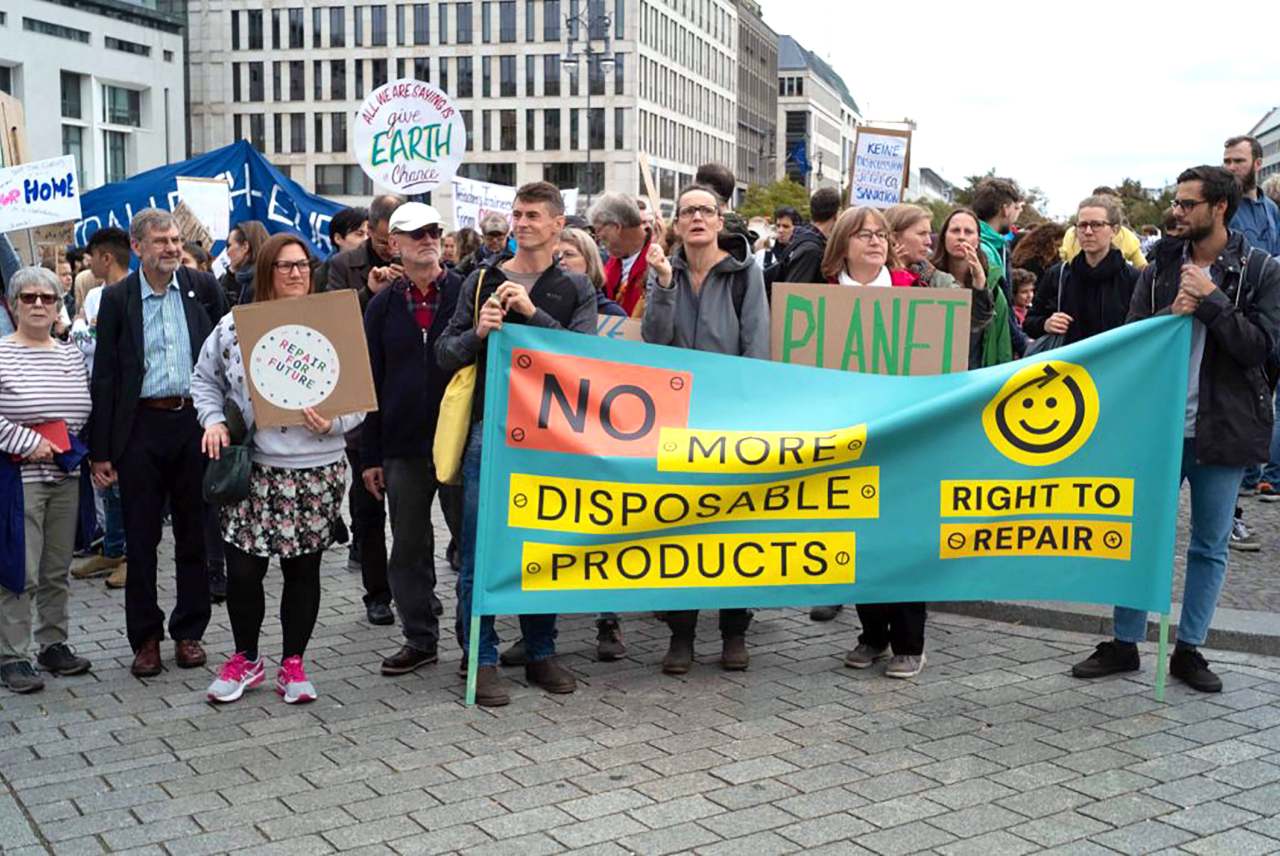A new report from environmental network EEB states that extending the lifetime of all washing machines, notebooks, vacuum cleaners and smartphones in the EU by just one year would save around 4 million tonnes of CO2 annually by 2030, which is the equivalent of taking over 2 million cars off the roads for a year.
This calculation, from The ‘Coolproducts Don’t Cost the Earth’ report, breaks new ground and considers the so-called ‘non-use phases’ (energy needed to produce and distribute new products and dispose of old ones) which, until now, has been overlooked in climate assessments.
At the same time, there is a demand from consumers for longer-lasting products. According to a recent survey, 77% of EU citizens would rather repair their goods than buy new ones. However, many companies have strict trademark laws which make it often impossible and even illegal to repair products. See our feature on E-waste for more.
This is why NGOs and other organisations are demanding changes with the EU-wide campaign ‘Right to Repair’. The main aim is to get access to repair information and spare parts for everyone – not just professionals.
The EU is already taking some action on this front. It is currently amending the directive ‘Ecodesign Requirements for Energy-Related Products’, however the new regulations cover only a small part of the requirements and won’t apply until 2021.
Provision is made for a minimum repairability for all TVs, monitors, fridges, freezers, washing machines, washer-dryers, dishwashers and lighting products placed on the EU market. This means that spare parts should be available between 7 to 10 years after the date of purchase, delivered within 15 working days and be installed without special tools and without damaging the device.
The campaigners from Right to Repair argue that the minimum changes aren’t enough in the face of climate change.
They demand that products have to be more durable, customers should be informed about lifetime and repairability of products (e.g. with the EU energy label), and all parts should be replaceable including the hardware and software.
Beyond that, they request incentives or tax reductions to create a vibrant market for repair which would not only reduce costs to consumers but also create new jobs.
Wider repair movement The Right to Repair campaign is part of the wider Repair Movement which argues that repairing saves both money and the environment. The movement aims to ditch the throwaway economy and disrupt the current model of capitalist consumerism. There are now 1,900 Repair Cafés worldwide.
Since 2017, repairers worldwide celebrate International Repair Day on the third Saturday in October. This marks the anniversary of the opening of the first Repair Café in Amsterdam. The motto in 2019 is ‘Repair for the Future’, in homage to Greta Thunberg.
FixFest in Berlin
Other events have also taken place around Europe this year to promote the repairing agenda. In September, the international FixFest was held at the Technical University in Berlin. With a diverse programme, it offered its 250 participants discussions with experts and practical advice on how to fix things in workshops.
Keynote speaker Melanie Jaeger-Erben, Professor for sustainability research at TU Berlin, pleads for a change of what has been described as ‘the cultural production of worthlessness’: “As soon as something is bought it already loses its value”, she told the conference.
New ways to minimise waste and the necessary political changes were the core element of the FixFest. The organisers explain that ‘high-quality recycling must always be the second choice […] the long use of products and repair is the only true alternative from an environmental perspective’.




